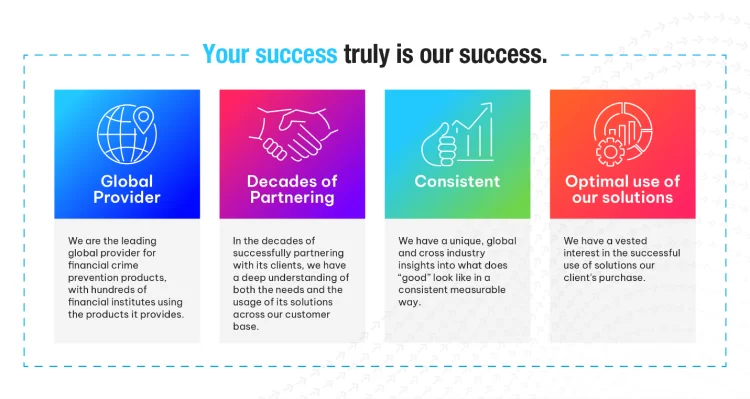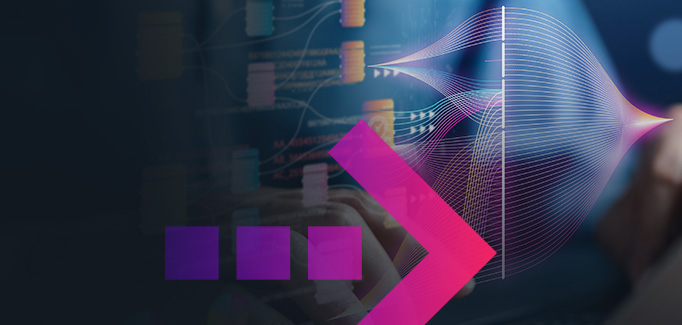Getting ready for the unexpected in 2025: The impact of geopolitical & regulatory events in Compliance and Professional Services
May 28th, 2025

There is no question that the recent and ongoing Geopolitical events will significantly impact compliance in various ways, affecting how organizations operate and manage risks. Some of the key areas where these impacts will be noticeable include regulatory changes, sanctions and trade controls, market volatility, cybersecurity threats and increased scrutiny.
One uncertainty, however, is whether the industry and other key players in the compliance ecosystem are prepared to tackle this challenge and how they will respond.. The traditional roles played by software and technology services providers are not limited anymore to selling And implementing solutions.
This article examines how solution providers must quickly adapt to a shifting landscape to thrive in an unpredictable world—where changes create ripple effects beyond just technology. It also explores their evolving role in effectively supporting customers and partners.
Understanding Change and Impact
Understanding the impact of geopolitical change on the financial services industry and its regulations, entails analysing the complex interplay of different factors that influence global relations and power dynamics. Here are some key steps and concepts to help grasp these changes:
Identify Key Drivers
Geopolitical changes are often driven by a combination of economic, political, military and social factors. Key drivers include:
- Economic Shifts: Changes in global trade, natural resources and regulation
- Political Movements: Shifts in government policies, leadership changes and international alliances
- Military Actions: Conflicts (active and dormant), defence strategies and military alliances
- Technological Developments: Innovations that alter power dynamics and strategic capabilities
Analyse Historical Context
Understanding the historical context of geopolitical strategies helps to further comprehend the implications for financial institutions (FIs). Historical events, such as wars, treaties and economic agreements, shape the present geopolitical landscape. For example, in order to understand the current dynamics governing the Russia and Ukraine conflict, we probably need to go back as far as the end of the Cold War in 1989.
Current geopolitical events
The following list outlines some of the current conflicts or situations that are already presenting challenges to FIs:
US-Mexico Relations
The US has intensified its pressure on Mexican drug cartels, leading to increased raids and extraditions. This has impacted security dynamics and bilateral relations. This could also lead the cartels to divert their supply chains through more vulnerable regions, sparkling more violence. This, in turn, could also re-route the subsequent illicit flows derived from drug trafficking.
Continuous tension emanating from Russia’s war in Ukraine
The possibility of the war expanding or escalating outside Ukraine and closer to the EU borders is driving a rearmament policy across EU countries. Other knock-on effects include the adoption of further resilience measures to support FIs in case of a major services disruption, e.g. collapse of communications network.
In relation to international sanctions, Russia has been using a “shadow fleet” to circumvent Western energy sanctions, showcasing its strategies to maintain economic stability despite international pressure.
North Korea’s Involvement in Ukraine
North Korean troops have been deployed in Ukraine. This unusual involvement has raised questions about North Korea’s international alliances and objectives. If a Russia/Ukraine peace deal is not achieved, it could mean an extended presence over time, with North Korea deploying assets using Russian infrastructure e.g. communications networks, much closer to Europe.
US-China/EU Trade War
The trade war between the US on one side, and China and the EU on the other, has escalated, with the US introducing new tariffs. This ongoing conflict affects global trade and economic policies across many jurisdictions. Any major trade disruptions would likely drive financial criminals to divert their illicit flows through vulnerable jurisdictions, or those with less robust regulatory frameworks.
What can Financial Institutions and service providers do?
While these geopolitical factors and subsequent changes are driven by factors external to compliance and technology, actors must be proactive They should actively research and pursue measures that will aim to keep the ecosystem as stable as possible and be able to adapt to change quickly and smoothly.
The following actions can help FIs and service providers alike to adopt a more proactive approach, enabling a better management of the current and future risks:
Monitor Current Events
Stay informed about current events and trends. News sources, expert analysis and geopolitical reports are great resources for gaining insights into ongoing changes and their potential impacts.
Use Analytical Frameworks
Collect data (quantitative and qualitative) to compare with the current status quo and formulate scenarios that can define a future framework for the development of responses and courses of action.
For instance, if the Sanctions regime affecting a particular jurisdiction suddenly changes (as it did in February 2022, following the Russian invasion of Ukraine), is the organisation ready to quickly change its screening systems and underlying processes?
Assess Impacts
Evaluate the potential impacts of changes across different functional areas, such as:
- Regulatory compliance: changes in legislation, data privacy/protection rules, changes in due diligence
- Detection: screening watchlists, transaction monitoring rules.
- Investigation: processes, data flows, outcomes, outputs contributing to regulatory submissions e.g. case narratives for SAR (Suspicious Activity Reporting).
- Systems: integration with other solutions, ingestion of external data, changes to accommodate some of the above changes.
Change Operating Models and Ways of Working
In order to implement some of the strategies listed above, FIs need to think of changing some of their more traditional approaches to managing compliance risk, such as:
- Develop an outward looking approach: develop processes that ingest data that helps to understand external environments.
Turn this information into intelligence analysis that can support senior decision making and prioritize risk management actions, e.g. analyse the impact of certain countries suddenly becoming “high risk,” or the potential divergence around Sanctions regimes, depending on the jurisdiction.
- Skills: analyse and integrate non-traditional data sets into investigations. Increase internal engagement and understanding of different areas subject to impact e.g. business continuity planning.
The role of professional services (PS) providers
Traditionally, technology service providers have focused on aspects such as implementation, upgrades and the customization of tools delivered to their customers.
However, the current challenges demand more flexible and imaginative solutions. The pace and unpredictability of the events described above makes any roadmaps tentative at best. Software users and providers need to adapt quickly to keep up. Below are a few practices which can assist FIs:
a. Proactive posture: PS agents need to develop capabilities to assess the likelihood of geopolitical events and assess the impact they may have on regulatory, technological and operational environments. To this effect, non-traditional skills are needed, such as information exploitation and intelligence analysis.
b. Dissemination: The last years have seen how the traditional “need to know” analytical approach has given way to a “need to share” approach, where early warning and awareness of multiple stakeholders is a key element to achieving a better understanding of the events unfolding, and how /when they will influence the industry.
This “situational awareness” must be both internal, (e.g) solution providers must be prepared to change their development roadmaps) and must include specific features that can become a critical for the customer (e.g. include network analysis to enhance ultimate beneficiary ownership).
Awareness must also reach software users, as they need to be able to generate requirements suited to the next situation. To this respect, PS providers can play a crucial role by advising their clients on how to best manage geopolitical change and impact.
c. Skills & Training: Services providers need to include skills delivery and training. Only by doing so can their customers efficiently operate their systems, adjust their processes and maintain compliance with regulators.
Following the above example, network analysis requires specific skills applied to different use cases. Delivering new capabilities without proper training will force users to “fly blind.”
d. Efficiency: Changes will push users to adopt new technologies, policies and processes. PS providers are in an ideal position to advise their customers on how to build roadmaps and guide them through their journey. This can be achieved by periodically assessing the efficiency of frameworks and if they deliver the results prescribed by their regulators.
Conclusion
Traditional approaches are unlikely to succeed in the unconventional environment now emerging, as commonly used frameworks and operating models were not designed for these conditions.FIs should seek help from specialized providers to adapt to changing global factors and reduce non-compliance risks, and the costs derived from managing these.
PS providers should move beyond their traditional “installation and support” approach and embrace a more dynamic, cross-functional model. This evolution enables them to guide customers on everything from technology utilization to process optimization, while also supporting new skills training.
By proactively analysing their environment, PS providers can enhance their situational awareness capabilities, adapting their products and advising their customers accordingly. Ultimately, the ability of FIs to navigate change and collaborate effectively with their technology service providers will likely determine the fate of firms—whether they underestimate the impact of geopolitical shifts or struggle to evolve.
How NICE Actimize Professional Services can help
Let us help you achieve sustainable success. Contact us today to schedule a consultation and learn how our industry expert team can assist you in:
- Identifying and assessing the impact of geopolitical events in the regulatory environment, and how this will affect institution
- Reviewing your current policies, operations processes and standing procedures against the changing background, helping you determine if they are still fit for purpose
- Identifying areas for improvement
- Setting realistic, measurable goals
- Integrating industry best practices
- Driving continuous improvement
- Enhancing competitiveness






